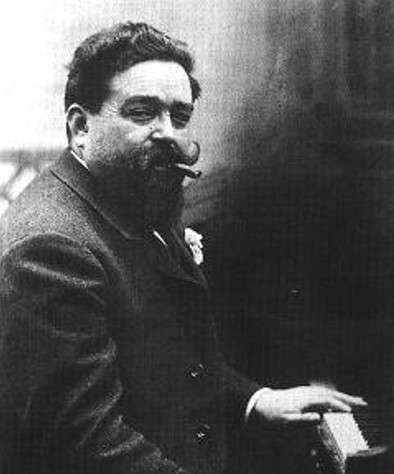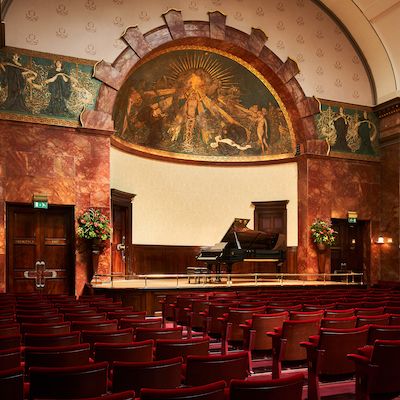| Año de nacimiento | 1860 |
| Año de muerte | 1909 |
| Nacionalidad | España |
| Periodo | Siglo XX |

The music of Isaac Albéniz typifies a purely Spanish style of romantic music, in which classical form is present, but the most important part is played by gypsy and moorish influences and a feel for the musical traditions of Spain.
Albéniz was a child prodigy extraordinary even by the standards of Mozart and Mendelssohn: he first performed in public at the age of four, and passed the entrance exam to enter the Paris Conservatoire at the age of seven, although, the legend goes, he was thrown out for breaking a window with a ball on the day of the exam. He had published his first piano work, Marcha Militar, by the age of eight. He studied in Madrid and then briefly in Germany (at the Leipzig Conservatoire): his ambition was to study with Liszt but he only managed a brief meetings with him in Budapest. Like Francisco Tárrega, he was unhappy and ran away from home several times, making a living by playing piano in bars.
Albéniz's last major work, Ibéria, is considered his masterpiece: it is a four volume set of twelve pieces for piano which encapsulates the music and traditions of Spain. But his most performed piece is Asturias (Leyenda) from his earlier Suite Española - although not in its original form. The original was written for piano, but is now a staple of the classical guitar repertoire in any of a large number of transcriptions by Tárrega, Segovia and many later guitarists. Asturias works so well for guitar that it is hard to imagine it ever having been a piano piece, and indeed, Albéniz himself is said to have preferred the transcription to his own original.
Albéniz's legacy was to legitimise Spanish music with a musical establishment to whom a German/Italian classical form was the one true faith. Since the roots of Spanish music came from moorish and gypsy styles with rhythm, harmony and counterpoint which have little in common with the church and dance music of the rest of Europe, it was an extraordinary achievement from an extraordinary musician.
David Karlin
14th December 2008





